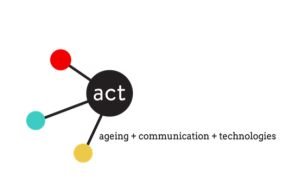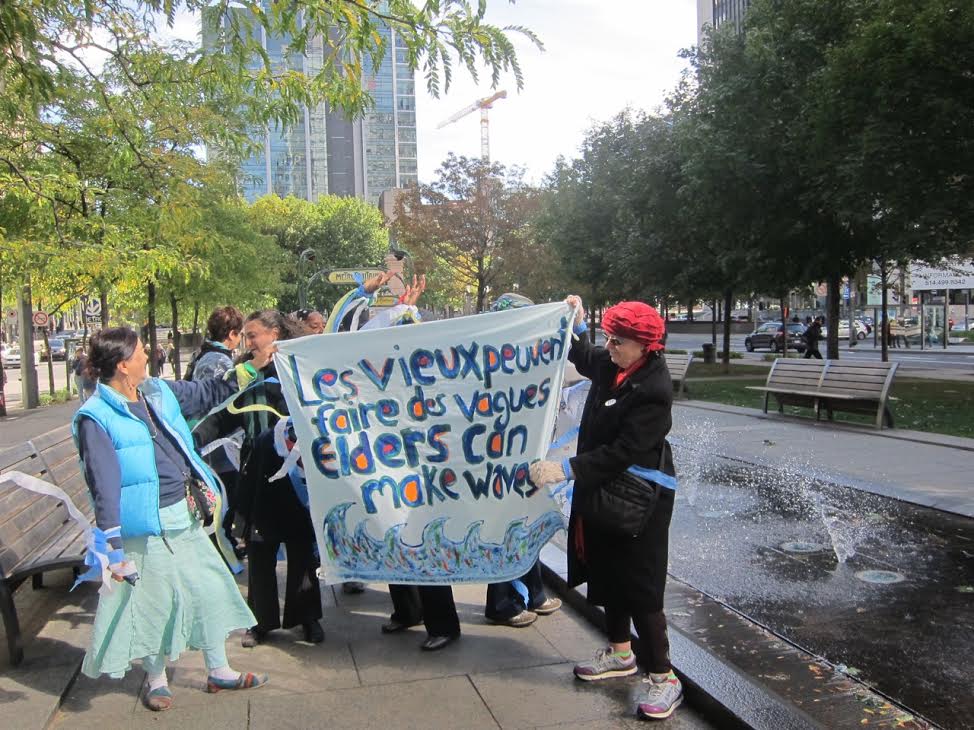
An ACT Postdoctoral Fellowships will be awarded to an emerging researcher working within one or more core areas of the SSHRC-funded research project “Ageing, communication, technologies: experiencing a digital world in later life.”
ACT is a multi-methodological project that brings together researchers, local community partners and international institutional partners to address the transformation of the experiences of ageing with the proliferation of new forms of mediated communications in networked societies. It encompasses research that is conducted along three axes:
1) Agency in ageing: collaborative creativity and the digital arts in later life entails a program of research that involves individuals and communities in the development of participatory action research projects that have both scholarly and creative outcomes.
2) Critical mediations: everyday life and cultures of ageing examines the everyday life practices and the variegated mediated experiences of adults in later life, including by looking at how older adults engage with music, photography, film, television or gaming.
3) Telecommunication technologies: ageing in networked societies investigates ageing in the context of networked societies. Research in this area bridges internet and telecommunications research with ageing studies.
POSITION
The ACT Postdoctoral Fellowship entails a yearly salary of $45,000 and can begin as early as April 2016. Applications for one-year projects will be considered and there may be an opportunity for re-application for a second year. The ACT Postdoctoral Fellowship will be housed at Concordia University in Montreal, but can be undertaken in collaboration with a partner institution of ACT (see the website for the full list of partners).
A central goal of ACT is to train a new generation of Canadian scholars in the study of ageing from the perspective of the social sciences, the arts and/or the humanities.
As such, in addition to conducting and completing their own research project in coherence with the ACT mandate, the successful candidate will be expected to participate actively in the intellectual development of ACT, to work on a regular basis from the ACT offices located in downtown Montreal, and to perform some of the following tasks that are intended to complement their postdoctoral training:
– Assist in the organization and implementation of academic and community events, including conferences and workshops.
– Conduct public and university lectures.
– Contribute to the development of collaborative ACT projects including existing ones like ACTipedia, Ageing Media Watch and Interaction.
– Assist in the preparation of grant applications.
ELIGIBILITY
The successful candidates will have a Ph.D. in hand before beginning the position and will have received their Ph.D. no earlier than March 31, 2012.
APPLICATION
In a single email addressed to application@actproject.ca, please provide the following three components as individual attachments.
– A letter of intent (maximum 3 pages) that articulates the research project to be undertaken, how the research fits within the mandate of ACT, the candidate’s suitability and expertise, the applicant’s timeline and collaborative interests within the ACT network.
– A CV.
– A list of three references with complete contact information, who could be called upon to write letters of recommendation.
The deadline for this call is February 6, 2016.
Questions pertaining to this position should be sent to Constance Lafontaine (admin@actproject.ca).



